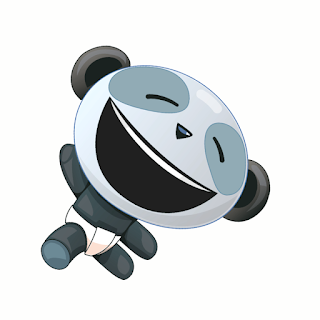Learning A New Language.
The thrill that comes with learning something new is often explosive; depending on how much of the excitement your heart can contain. You feel as though you're seeing the world through new eyes and of course, you are.
Yes, change is a never-ending part of our lives but embracing it is one of the most challenging journeys on which you’d ever embark. Learning a new language is thrilling; however, it is not without hiccups.
I have had a picture of Germany in my heart since my lecturer painted my class one during what should have been a biochemistry lecture. It is not news to the World that Biochemistry there is at its finest. So when the opportunity to learn a new language came for me, I practically jumped on it, especially as it was German. I feel as though I'm a step closer (lol).
Learning a new language will take hours upon hours of study, repetition, quizzes and a lot of consistency. I must add, that the video lessons available on Udemy are as easy as it gets; I would probably be a hot mess without those. Now, I’d be lying if I said you’d cover up the significant aspects of any language with short cuts. Nevertheless, here are some tips on how to get by.
Visual representation
I must thoroughly emphasize the fact that this is NOT a review for the Udemy App. However, the App, as well as YouTube, provide excellent visual representations. Visual reps are built into apps to save you the stress of class groups. Surely class groups have worked for many individuals. It simply may not be as effective as you will expect. First, the group moves according to the pace of slowest in the group, and it is not time-effective. Learning with videos and online works for any language you want to learn. Also, the apps make it easy to learn on the go, at any time, anywhere and at any pace. You get to monitor your progress while learning.
In addition to this, science believes that we are likely to remember what we have seen faster than what we haven’t. So visualizing helps commit to memory. Having a visual when learning a new language allows it to stick up there. When the need arises, you only need to revisit the video and voila! You have what you need.
Start small
You’re excited, I know. You feel like you can take it all in at once but really, you cannot. Learning is a process, and every method has its steps. The first for learning a new language will be to start small. Begin from the most straightforward words and gradually go up the ladder. For example, you can begin with the alphabet or simple greetings since it is fundamental for any language. Then you can move to vowels, consonants, pronouns, verbs and other aspects of communication.
Repetition
Repetition strengths memory; my father taught me this simple trick, and it works. In addition to visual representation, this is a bonus. When you repeat words, sounds and sentences, you remember them easily.
All the stupid stuff you'd likely say at first will come through repetition. Accept it because, with practice, you get better. Furthermore, repetition helps you with pronunciation patterns which are of significance in languages. For example, the English word Warm is also written as Warm in German; however, the German pronunciation is Veh-arm. W in german goes like Veh. You see, you may not get it until you’ve tried three times.
Converse in your new language
If there is a short cut to learning a new language, it will be conversing in the language. You will be vested when you speak it to someone. Without a doubt, this is a form of motivation to continue.
Secondly, our minds process memories that involve actual experiences faster and speaking a language is one of those. So, if you find someone to talk about the language to, make it fun. Explore and allow yourself to make mistakes. Chances are they’d correct you anyway, or you may forget everything you think you’ve learnt.



Repetition really does work, see me improving on my Hausa skills
ReplyDeleteWho speaks Spanish here
ReplyDelete